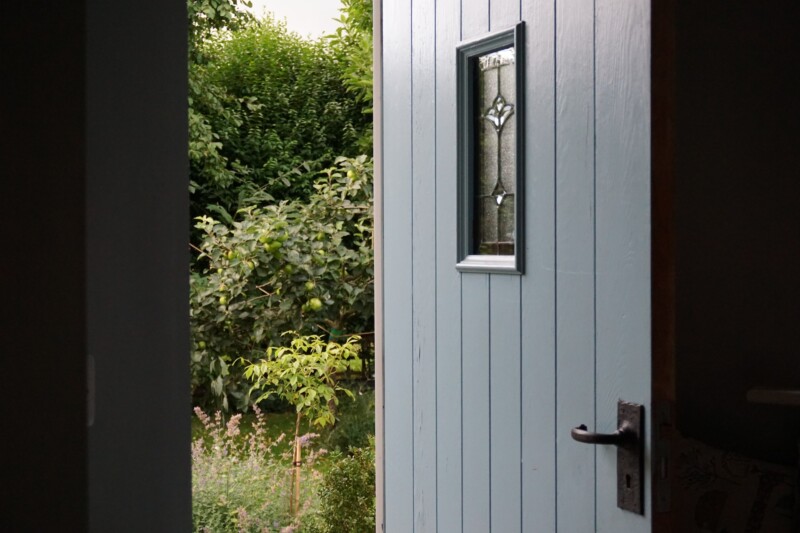As we traverse the path of increasing energy efficiency and environmental consciousness, it becomes imperative to understand the role of residential energy code compliance in achieving these goals. One instrumental facet of this compliance is blower door testing – a diagnostic procedure that assesses a home’s airtightness, a crucial factor affecting energy consumption.
The importance of blower door testing cannot be overstated, as it not only identifies air leakage and drafts but also indirectly influences the comfort, indoor air quality, and even the structural longevity of a home. It’s an essential tool in the modern arsenal to ensure that residential buildings meet stringent energy codes, contributing towards a sustainable future.
With that in mind, let’s delve into the significance of blower door testing in achieving residential energy code compliance, thus highlighting its crucial role in the broader narrative of energy conservation.
Delving into Blower Door Testing: How It Works
Blower door testing is a diagnostic tool that evaluates a home’s air tightness, helping identify air leaks and assess the overall energy performance of the building envelope. The procedure involves mounting a calibrated fan, known as a blower door, in a carefully sealed exterior doorway.
Once activated, the fan either depressurizes or pressurizes the building, enabling the measurement of airflow and uncovering any air leakage sites. The results of the blower door test are usually expressed in air changes per hour (ACH) at standardized pressure levels, allowing for easy comparison to energy code requirements.
The test can also be performed with an infrared camera or a smoke pen to identify air leakage locations visually. By pinpointing these areas, homeowners can address air leaks effectively, improving their home’s energy efficiency and ensuring energy code compliance.
Grasping the Benefits of Blower Door Testing
Blower door testing offers numerous advantages for homeowners, construction professionals, and the environment alike, including:
- Improved Energy Efficiency: Identifying and sealing air leaks leads to a significant reduction in energy loss. As a result, homeowners can expect lower energy bills and improved overall energy efficiency.
- Greater Indoor Comfort: Air leaks can lead to drafts, uneven temperatures, and even increased outside noise. Blower door testing allows homeowners to seal those leaks, promoting consistent indoor temperatures and enhancing living comfort.
- Enhanced Indoor Air Quality: Air leaks can introduce pollutants, allergens, and moisture into the home, potentially resulting in adverse health effects and decreased indoor air quality. By identifying and sealing these leak sites, homeowners can keep contaminants at bay, ensuring a healthier and cleaner living environment.
- Reduced Environmental Impact: Improved energy efficiency means lowered energy consumption, which in turn translates to reduced greenhouse gas emissions and a smaller environmental footprint.
The Role of Blower Door Testing in Meeting Energy Code Requirements
One of the main goals of energy code compliance is to promote the construction of energy-efficient and sustainable buildings. Air sealing and minimizing air leakage are significant components of achieving this goal as they help reduce energy waste and maintain a comfortable indoor living environment. As such, blower door testing is an essential diagnostic tool in ensuring that a home meets the required levels of air tightness set forth by local energy codes.
Energy codes often set specific air leakage rate targets, expressed in ACH, that homes need to achieve for compliance. By incorporating blower door testing into the construction process, homeowners and construction professionals can verify whether their home meets these targets, and if necessary, implement corrective measures to improve air tightness.
Partnering with a Certified ICC Residential Energy Inspector/Plans Examiner for Blower Door Testing
Navigating the complexities of blower door testing and residential energy code compliance can be challenging. This is why enlisting the services of a certified ICC Residential Energy Inspector/Plans Examiner can prove invaluable in ensuring that your home’s air tightness and energy efficiency are up to par.
These professionals are well-equipped with the knowledge and expertise necessary to conduct accurate blower door tests and provide valuable guidance on improving your home’s energy performance.
Collaborating with a certified ICC Residential Energy Inspector/Plans Examiner in blower door testing offers several advantages, including:
- Proper Test Execution: A certified professional possesses the skill and experience to conduct accurate blower door tests and interpret the results, ensuring reliable and meaningful data.
- Targeted Recommendations: Based on the blower door test results, the inspector can offer tailored recommendations to address air leakage issues and enhance your home’s overall energy performance.
- Energy Code Compliance Assistance: By working closely with an ICC Residential Energy Inspector/Plans Examiner, you can ensure that your home meets local energy code requirements by adopting the appropriate air sealing measures and minimizing air leakage rates.
Safeguarding Your Home’s Energy Efficiency through Blower Door Testing
Blower door testing plays an indispensable role in assessing a home’s air tightness, promoting energy efficiency, and ensuring compliance with energy code requirements. By deepening your understanding of blower door testing and joining forces with a certified ICC Residential Energy Inspector/Plans Examiner, you can secure your home’s energy performance and contribute to the broader goals of energy conservation and environmental stewardship.
Embrace the power of blower door testing and partner with experienced blower door test contractors like Energy Code Inspections to enhance your home’s energy efficiency and ensure a comfortable, sustainable living space. Get in touch with us today!

